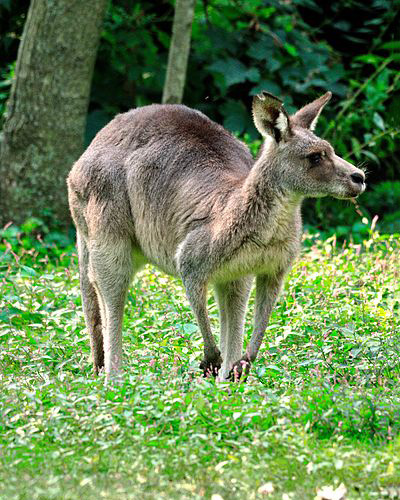Wildlife trade bans not the only option to reduce pandemic risk
A new study from a team of researchers at the Royal Veterinary College, Griffith University and TRAFFIC, a wildlife trade NGO, suggests that existing systems for food safety, rather than broad, untargeted bans on wildlife trade, are key to preventing the next pandemic.
Published in Lancet Planetary Health, the research, led by Dr Duan Biggs from the Centre for Planetary Health and Food Security at Griffith University, alongside Professor Richard Kock, Wildlife Health and Emerging Diseases at the Royal Veterinary College (RVC), and James Compton, Project Leader at TRAFFIC, argues that a solution to the disease risk in wildlife trade is through extending existing food health safety systems.

This follows historical trends which have demonstrated how blanket bans on wildlife trade are impractical and unsustainable with serious consequences on the livelihood of those who are dependent on the trade.
Dr Duan Briggs, Senior Research Fellow, Centre for Planetary Health and Food Security at Griffith University, said:
“The wildlife trade is suspected to have played a role in the appearance and spread of new potentially dangerous diseases including COVID-19. In response, many organisations have called for a global ban of the trade and consumption of wild animals by humans.”
“Bans in wildlife trade in response to previous disease outbreaks like Ebola have been short-lived and unsustainable, and in many ways increase disease risk as trade is forced underground. Targeted Bans have their place and value, but alternatives also need to be sought.”
Furthermore, current food health safety systems have been developed and used for decades to be able to sell food in supermarkets, and restaurants, but with very limited application in wildlife trade. However, Critical Control Points approach, widely used in food systems for livestock, could be expanded to the wildlife trade.
Professor Richard Kock, Wildlife Health and Emerging Diseases at the RVC and Chair of the International Union for the Conservation of Nature’s Wildlife Health Specialist Group, said:
“Identifying source pathogens for new human diseases is like finding a “needle in a haystack” and we need innovative preventive practices so we don’t need to find them. We have a pretty good system in place for reducing risks of disease from animal based food from domestic species, but wildlife-based food and products is inadequately managed, so incorporating current models into this trade is just common sense.”
James Compton, Project Lead at TRAFFIC, said:
“The Critical Control Points system identify points in food supply chains where there are high risks, and specify actions, checks, and processes to manage the risk.
“These systems are already being used for trade in other species, whether wild or domesticated animals, including for kangaroo supply chains.”
Research reference
Duan Biggs, Hernan Caceres-Escobar, Richard Kock, Gavin Thomson, James Compton. Extend existing food safety systems to the global wildlife trade. The Lancet Planetary Health. Volume 5, Issue 7, 2021, doi.org/10.1016/S2542-5196(21)00142-X.
Notes to Editors
For more information please contact:
- Jasmin De Vivo (Jasmin.DeVivo@plmr.co.uk or rvc@plmr.co.uk
- Press Line: 0800 368 9520
About the RVC
- The Royal Veterinary College (RVC) is the UK's largest and longest established independent veterinary school and is a Member Institution of the University of London. It was the first in the world to hold full accreditation from AVMA, EAEVE, RCVS and AVBC.
- The RVC is ranked as the top veterinary school in the world in line with the QS World University Rankings by subject, 2021.
- The RVC offers undergraduate and postgraduate programmes in veterinary medicine, veterinary nursing and biological sciences.
- In 2017, the RVC received a Gold award from the Teaching Excellence Framework (TEF) – the highest rating a university can receive.
- A research led institution with 79% of its research rated as internationally excellent or world class in the Research Excellence Framework 2014.
- The RVC provides animal owners and the veterinary profession with access to expert veterinary care and advice through its teaching hospitals and first opinion practices in London and Hertfordshire.

